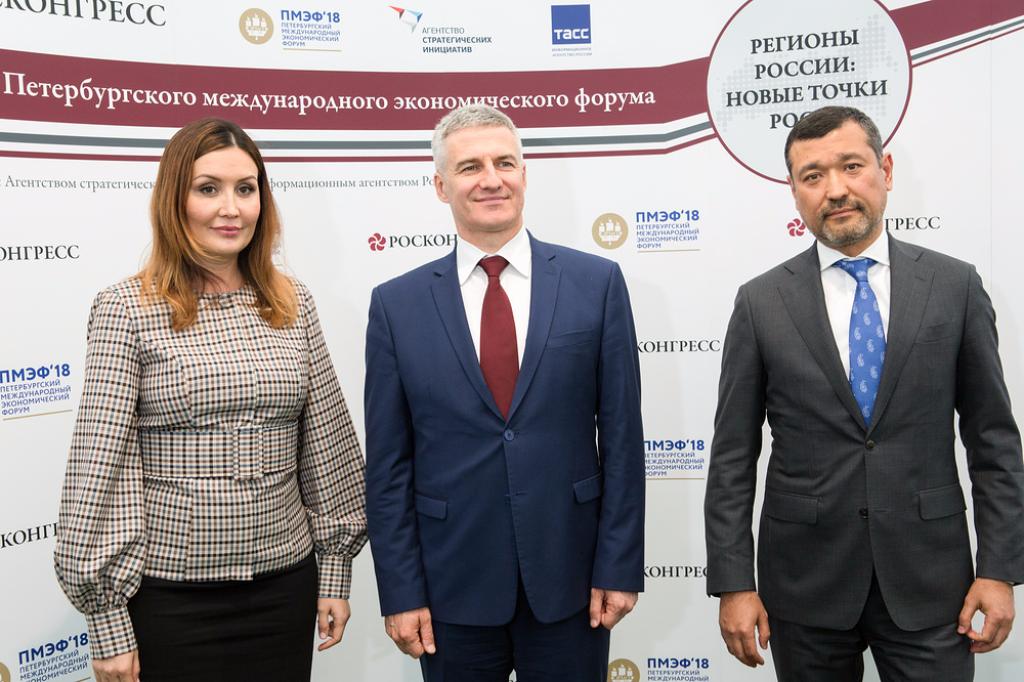
Potential benefits from development institutions for regional business in focus in Karelia
On 25 July 2017, a Karelia session of the St. Petersburg Economic Forum entitled “Russia’s regions: New Areas of Growth. Unlocking the potential of development institutions” was held jointly by the Roscongress Foundation, the Agency for Strategic Initiatives and TASS Russia News Agency in Petrosavodsk. According to Adviser to the President of the Russian Federation and Executive Secretary of the Organizing Committee of the St. Petersburg International Economic Forum Anton Kobyakov, SPIEF offsite sessions are purely practical in nature and are intended to create an awareness among regional businesses of the government support measures available. “We are determined to explore further the SPIEF offsite session format that has so far proven successful in order to develop the economic and investment potential of Russia’s regions more efficiently”, Mr Kobyakov stated.
At the session, acting head of the Republic of Karelia Artur Parfenchikov cited the high electricity rates for small and medium-sized enterprises as a pressing issue. “When electricity rates for SMEs are at RUB 10 per kilowatt, it is difficult to speak of any investment appeal. It is a complex problem we have to address. We are working to solve it in constant contact with our entrepreneurs and are trying to establish a dialogue with power generation and distribution companies”, Artur Parfenchikov said.
According to the acting head of the Republic, addressing the issue will help to improve the Region’s business climate significantly and attract more investors to Karelia’s industrial parks. ASI General Director Svetlana Chupsheva observed that Karelia had already done a lot to improve its business environment. Compared to 2016, Karelia has upgraded its position in the National Investment Climate Rating. In some aspects, Karelia is well ahead of not only neighbouring but most of Russia’s regions in general; this applies, for instance, to new business registration, registration of real estate title, and small and medium-sized enterprises.
In addition, Karelia has already achieved some of its target model goals, namely, in SME support. More specifically, target models have been implemented in agricultural cooperation, connecting SMEs to electricity and gas supply networks. In general, Karelia’s ratio of implementing target models averages almost 60% and is even higher, at over 80%, as far as registration of land ownership rights and setting up of a specialized organizations responsible for attracting investment and investor relations are concerned.
“We are operating throughout the country, since there have been difficulties at both the federal and regional levels related to transparency of services and their quality, timelines and costs for businesses. We are handling complaints from entrepreneurs that their investment costs run up to RUB 1bn, with power companies requesting an equivalent amount for connecting them to power networks. In such cases, economic feasibility is out of the question”, Svetlana Chupsheva explained.
There is a demand for support from federal development institutions like the Skolkovo Foundation, the Russian Venture Company, VEB, SME Corporation, the Industrial Development Fund, the Monotown Development Fund, etc. among businesses in the Republic of Karelia, but the information on such government support measures has not been centralised. “The gaps in information on SME support measures and the lack of feedback are the main problems our country is currently facing. At the St. Petersburg International Economic Forum (SPIEF 2017), we signed a memorandum on cooperation between federal development institutions (VEB, SME Corporation, Russian Direct Investment Fund, ASI, Industrial Development Fund, Roscongress Foundation and TASS) regarding a policy of transparency and sharing information and related data on ongoing programmes run by development institutions. We have also set up a working group monitoring compliance with the memorandum. In the initial stage, the key is to develop universal information disclosure standards and terms of reference”, Deputy Director of the Roscongress Foundation Shukur Israilov said.
To capture and share the necessary information on government support measures offered by development foundations at both the federal and regional levels, an integrated, open communications platform will be created. “The platform will deliver the latest and most exhaustive information on government support measures consolidated for the benefit of small and medium-sized businesses, and make government institutions more accessible to entrepreneurs, thereby considerably improving the overall investment climate in Russia. TASS is ready to contribute to the project, including by extending its technical open data collection and aggregation capacity, the TASS-Business platform”, Deputy General Director of TASS Russian News Agency Andrei Sokolov said. Summing up, ASI General Director Svetlana Chupsheva pointed out that the work they were carrying out in conjunction with the Roscongress Foundation “to deliver an efficient SME support data aggregator is an important step in shaping an environment that promotes entrepreneurship. The offsite session format enjoys steady demand from the regional business community and such events should be held on a regular basis.”








